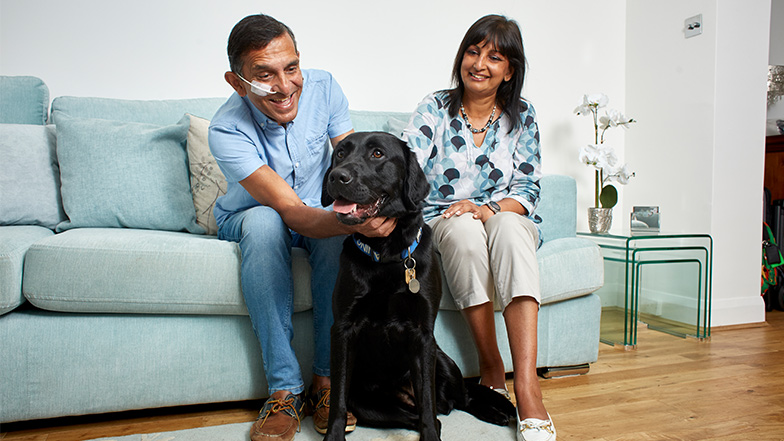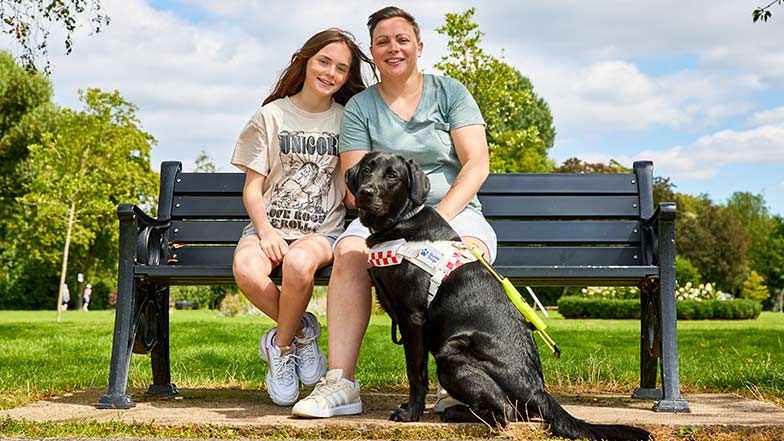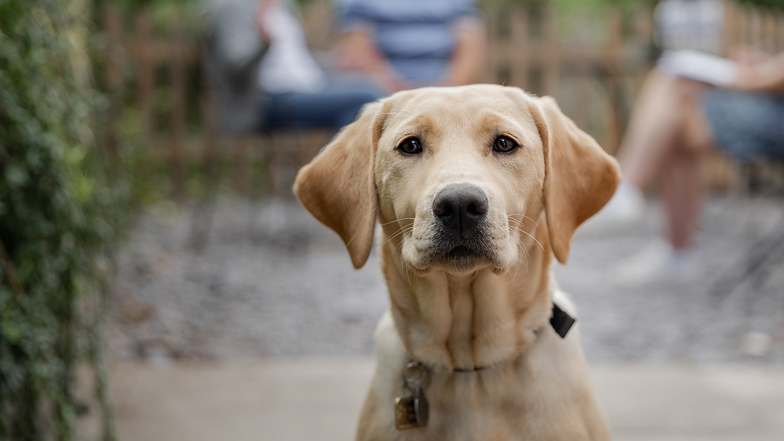What the National Centre does
Our National Centre, in Warwickshire, is our state-of-the-art centre that is home to our world-class breeding programme. The National Centre was built in 2011 and hosts a team of experts, who help produce our life-changing guide dogs.
Genetics and breeding
On average, a guide dog mum comes into season every seven months and is normally mated every other season. There are several factors for us to consider when deciding whether a guide dog mum should be mated, assuming she is in good health. Once we’ve established a guide dog mum is to be mated, extensive research is carried out to select an appropriate partner and this is married to the guide dog mum with reference to her own qualities.
Blood samples are taken from a guide dog mum due for mating to evaluate the progesterone levels, which rise at the point of ovulation, so we know she is ready for mating. While we always try to effect natural mating wherever possible, at times it is necessary to artificially inseminate. We are proud that our conception rates remain consistently high at over 95%.
Pregnancy and birth
At approximately four-to-five weeks post mating, the guide dog mum is checked for pregnancy using an ultrasound scanner and to determine the number of pups expected. The average gestation period is 63 days and our average litter size seems to be on the rise, currently at 7.6.
Early socialisation
Whilst most litters are born in the home with their volunteer carers, many are born at the National Centre. It's important that all pups are exposed to as many different sights and sounds, and other stimuli in the environment, as early as possible and this is carefully supervised, both in the kennel environment and in the home.
Pups born with their volunteer carers are naturally exposed from a very early age to all the normal everyday sights and sounds found in the home, such as vacuum cleaners, televisions, radios, washing machines and various visitors.
For those born at the National Centre, we have a group of dedicated volunteers who carry out general socialisation of the pups from an early age, including frequent handling and exposure to a variety of different sounds and visual stimuli. All our pups, between seven-to-eight weeks of age, will receive a further period of specialist socialisation conducted by a team of trained volunteers, directed and supervised by experienced and qualified staff and all enabled by the wonderful facilities the National Centre provides.
Get to know our guide dog breeds and discover more about their care needs.


